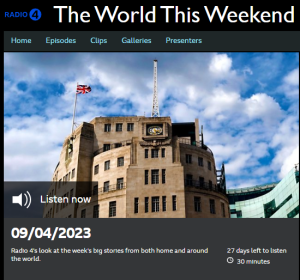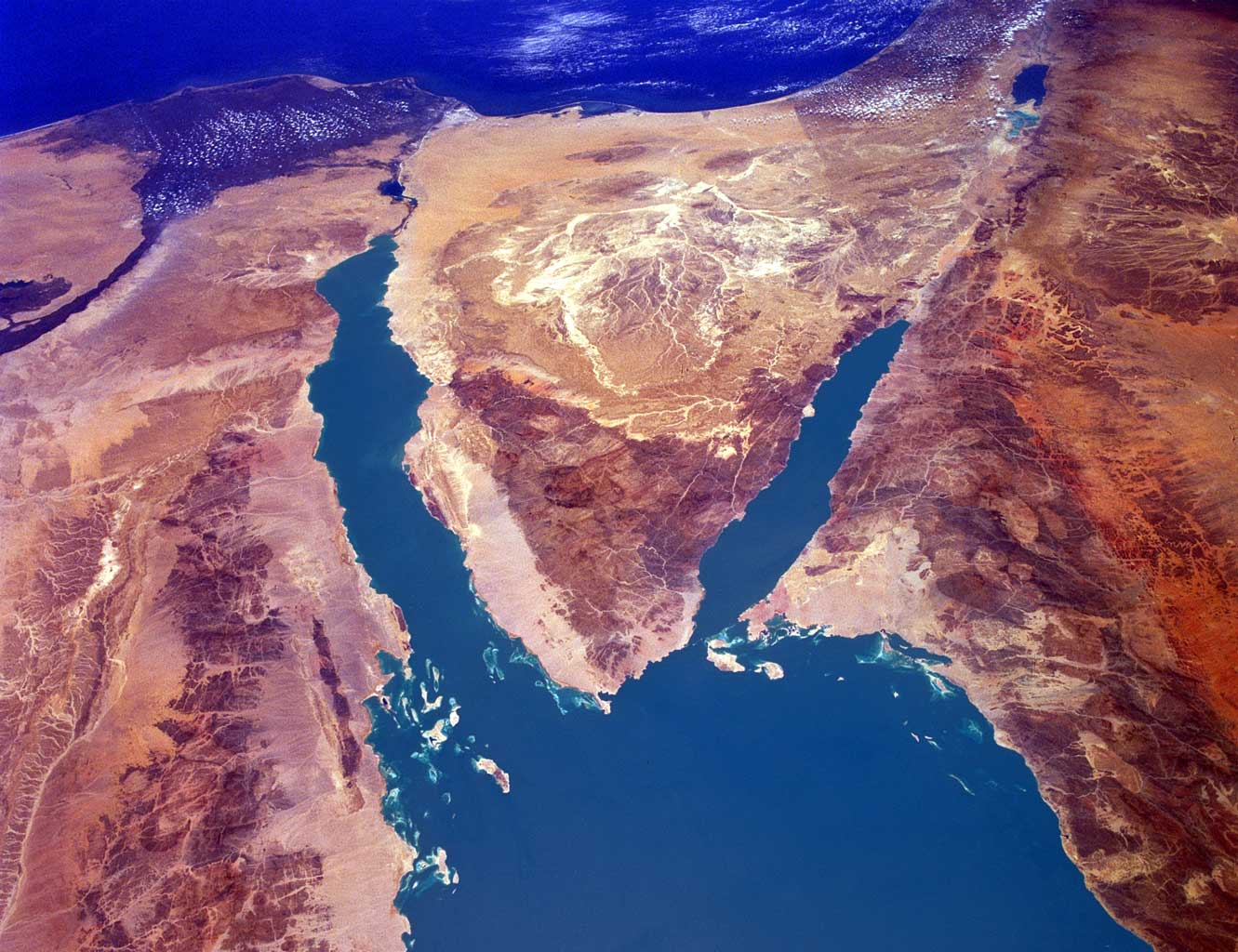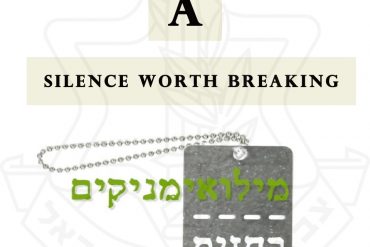Back in April we documented an item aired on the BBC Radio 4 programme ‘The World This Weekend’ in which listeners heard baltant disinformation promoted by an interviewee go completely unchallenged by presenter Jonny Dymond:
JORDANIAN DISINFORMATION GOES UNCHALLENGED ON BBC RADIO 4
Former Jordanian minister Jawad al Anani told listeners to that programme (which is no longer available online) that: [emphasis in italics in the original, emphasis in bold added]
“Actually, even before 1967 Jordan respected the rights of Jews to go and come to their holy places.”
CAMERA UK submitted a complaint on that topic, pointing out that not only did Jordan not ‘respect’ the religious rights of Jews during its illegal occupation of parts of Jerusalem between 1948 and 1967, it destroyed dozens of synagogues and desecrated the ancient Mount of Olives cemetery. In direct contravention of the 1949 armistice agreements, Jordan did not permit Jews access to their holy sites or to the Jewish cemetery on the Mount of Olives during that period and, notably, Israeli Arabs, were also denied access to the Al Aqsa mosque on Temple Mount.
On April 26th we received an email informing us that it would take more time to address that very straightforward complaint. On May 17th we were told that the time limit for addressing our complaint had expired.
On June 8th we received the following communication from BBC Complaints:
“Thanks for contacting us about The World this Weekend, broadcast on 9 April. We apologise for our delayed response. We have shared your concerns with the senior editorial team at the programme.
The focus of this interview was the flashpoints which had occurred in the preceding days in the area around Al Aqsa mosque, and generally across Israel and the Occupied Palestinian territories, and the response of Jordan and other countries in the region. While we accept the point made may well be contentious, presenters don’t always have the time to try to challenge every point made, or give a wider or opposing viewpoint. This is a complex area about which interviewees often seek to make a variety of historical references to back up their positions and we can’t always examine every point in the time available where it is not central to the subject at hand.” [emphasis added]
On June 10th CAMERA UK submitted a Stage 1b complaint, pointing out that BBC editorial guidelines on accuracy state that in live content, “Significant inaccuracies that may arise should be corrected quickly”. We asserted that the topic of our complaint was indeed a significant inaccuracy which materially misled listeners, concerning a matter of historical fact which has been known for decades.
On June 18th we were once again informed that it would take more time to address our complaint. On July 18th we received the following communication from BBC Complaints:
“Thanks for contacting us again about The World this Weekend, broadcast on 8 [sic] April. We apologise for our delayed response.
We’re sorry your [sic] weren’t satisfied with our previous reply. We have discussed your further concerns with the senior editorial team at the programme.
Our decision not to press Jawad Al Anani on how Jordan maintained access to the holy sites of Jerusalem pre-1967 was a finely balanced one. Mr Al Awani had been invited on to the programme to discuss the challenges and opportunities for a regional role in conflict resolution – his interview followed a meeting earlier in the day of regional representatives and the US in Jordan. Although interesting, Mr Al Awani’s comment about access to the Holy sites wasn’t relevant to the developments of the preceding few weeks, which was the focus of the discussion and why we didn’t scrutinise this point during the interview.
As we previously said, while we appreciate this area of history may be contentious, our presenters can’t explore every point made.” [emphasis added]
In other words, the BBC claims that Al Awani’s false claims concerning access to holy sites during the 18 years of illegal Jordanian occupation of parts of Jerusalem “wasn’t relevant” to an item about deliberate Palestinian provocations at one of those sites and related attacks on Israeli civilians.
Also worthy of note is that in both those responses, BBC Complaints chose to present historical fact as “contentious”.
As we noted in our second complaint:
“The failure to correct this item makes a mockery both of supposed editorial standards as laid out in the editorial guidelines on accuracy and impartiality and the BBC’s branding of itself as a body which tackles disinformation, including by means of the recently launched ‘BBC Verify’ project.
Fighting disinformation should begin at home. When a Jordanian politician is allowed to promote serious disinformation unchallenged on a BBC radio station, audiences will rightly not trust the BBC’s claim to be an ‘antidote’ to disinformation elsewhere.”






Well let’s be honest here, the BBC will try to wiggle out of any awkward situation they find themselves in because the BBC are, have been and continue to be anti-Israel and antisemitic in their approach to reporting from the Middle East, thus will do anything within their power to lie about the situation to save face. They know full well that the complaints procedure they have designed rarely actions a complaint that denigrates their own pro Palestinian interpretation of the conflict, so are unlikely to shoot themselves in the foot in public. The next stage of complaint, Ofcom is a white elephant populated with ex BBC employees who will hardly desire to chastize the BBC #defundthebbc
Concern for truth is among the things readily given up by those intent on appeasing Moslems.